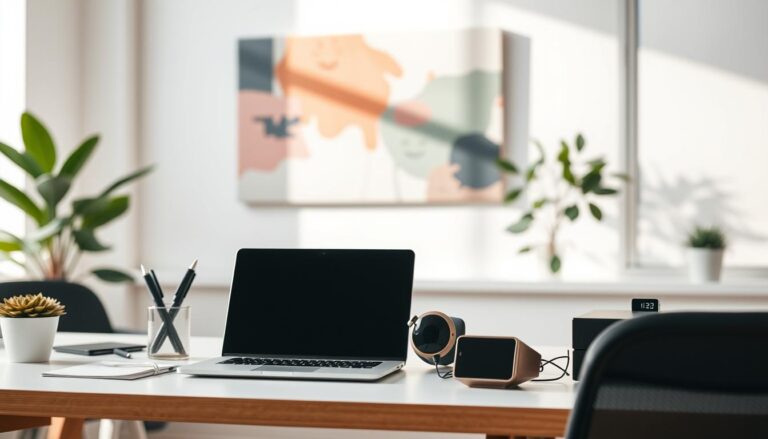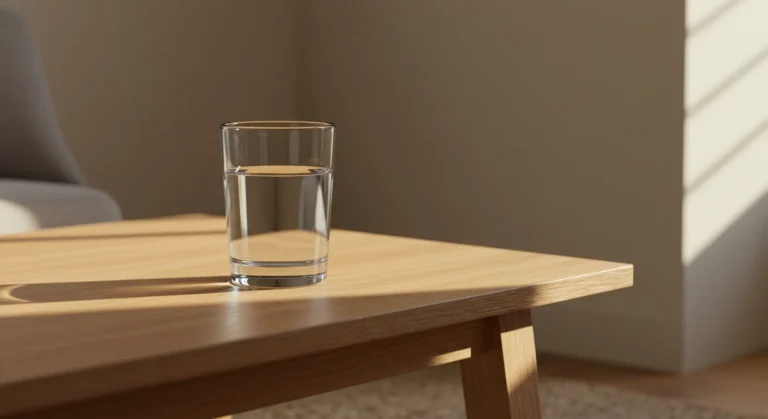Mental Clutter: 5 Simple Ways to Clear Your Overwhelmed Mind

Picture this: you’re sitting at your desk, staring at your to-do list, but your brain feels like a browser with 47 tabs open. Your mind jumps from tomorrow’s meeting to last week’s argument to that random song stuck on repeat. Sound familiar?
That’s mental clutter – the invisible weight of unprocessed thoughts, worries, and mental “stuff” that makes clear thinking feel impossible. My friend Emma described it perfectly: “It’s like having a messy room in my head that I can never quite clean up.”
Here’s the thing: a cluttered mind isn’t a character flaw or something you need to accept. It’s a signal that your mental filing system needs some attention. Ready to create space for what actually matters?
Key Takeaways:
- Mental clutter is accumulated unprocessed thoughts and worries
- Physical environment directly impacts mental clarity
- Simple daily practices can dramatically reduce mental noise
- Digital overwhelm is a major contributor to mind clutter
- Clear mind = better decisions, focus, and peace
What Exactly Is Mental Clutter?
Mental clutter is the accumulation of unfinished thoughts, unresolved decisions, and emotional baggage that crowds your headspace. Think of it as the mental equivalent of that junk drawer everyone has – full of random stuff you’re not sure what to do with.
Unlike physical clutter you can see, a clutter mind operates invisibly, creating:
- Decision fatigue from too many open loops
- Difficulty focusing on important tasks
- Constant background anxiety
- Mental exhaustion even when you haven’t done much
Research from UCLA shows that people living in cluttered environments have higher cortisol levels throughout the day. Your brain literally treats mental chaos as a stress threat.
The Hidden Cost of Mental Mess
When your mind is cluttered, everything becomes harder. Simple decisions feel overwhelming. Creative thinking shuts down. You find yourself procrastinating on important tasks while obsessing over trivial ones.
I learned this firsthand during a particularly chaotic period last year. Between work deadlines, family obligations, and that nagging feeling I was forgetting something important, I felt like I was thinking through fog. Nothing felt clear or easy anymore.
The breaking point came when I spent 20 minutes debating what to have for lunch – a decision that normally takes 30 seconds. That’s when I realized my mental bandwidth was completely maxed out.
5 Proven Strategies for Mental Declutter
1. The Brain Dump Technique
Start with the simplest mental declutter method: getting everything out of your head and onto paper.
How to do it:
- Set a timer for 15 minutes
- Write down every thought, worry, or task floating in your mind
- Don’t organize or judge – just dump everything
- Review and categorize afterward
This isn’t about solving problems yet. It’s about creating mental space by transferring the storage burden from your brain to external systems.
2. Digital Minimalism for Mental Peace
Our devices contribute massively to mental clutter. The average person receives 121 emails per day and checks their phone 96 times. Each notification is a tiny mental interruption that adds up to major cognitive overload.
Quick digital declutter steps:
- Turn off non-essential notifications
- Unsubscribe from email lists you don’t actively read
- Limit social media to specific times
- Use “Do Not Disturb” modes generously
Sarah, a marketing manager, reduced her mental clutter by 40% simply by checking email only three times per day instead of constantly throughout.
3. The Two-Minute Rule
This comes from productivity expert David Allen: if something takes less than two minutes, do it immediately instead of adding it to your mental to-do list.
Examples of two-minute tasks:
- Responding to simple texts
- Filing that document
- Putting dishes in the dishwasher
- Scheduling that appointment
These tiny tasks seem insignificant, but they accumulate in your subconscious, creating a constant low-level mental buzz.
4. Create Physical Clarity
Your external environment directly impacts your internal state. Clutter mind often reflects cluttered surroundings.
Focus on these high-impact areas:
- Clear your desk of everything except current projects
- Make your bed each morning for an instant win
- Designate specific homes for frequently used items
- Spend 10 minutes each evening resetting your space
The goal isn’t perfection – it’s creating visual calm that supports mental clarity.
5. Weekly Mental Maintenance
Just like physical spaces need regular cleaning, minds need consistent maintenance to prevent clutter buildup.
Weekly review process:
- Review what went well and what felt overwhelming
- Clear completed items from mental lists
- Plan the upcoming week’s priorities
- Process any emotional residue from difficult situations
The Science Behind Mental Decluttering
Mental declutter isn’t just feel-good advice – it’s backed by solid neuroscience. When your prefrontal cortex (the brain’s executive center) is overwhelmed with too much information, it literally can’t function optimally.
Studies show that people who practice regular mental decluttering experience:
- 23% improvement in working memory
- Reduced activity in the brain’s “default mode network” (associated with rumination)
- Lower cortisol levels throughout the day
- Better sleep quality and emotional regulation
Quick Daily Practices That Work
Morning Mind Clearing (5 minutes)
Before checking your phone, spend five minutes doing a mental inventory:
- What’s on my mind today?
- What am I worried about?
- What three things matter most?
This simple practice sets the tone for a clearer day ahead.
Evening Mental Reset (10 minutes)
End each day by:
- Writing down three things you accomplished
- Noting anything left unfinished (to address tomorrow)
- Identifying one thing you’re grateful for
- Taking three deep breaths to release the day
The Worry Window Technique
Instead of letting anxious thoughts scatter throughout your day, designate a specific 15-minute “worry window” where you allow yourself to fully process concerns. Outside this window, write worries down to address during your designated time.
Common Mental Clutter Traps
Information overload: We consume 5x more information daily than in 1986. Limit news and social media to prevent mental overwhelm.
Perfectionism paralysis: Trying to organize everything perfectly creates more mental clutter than it solves. Progress beats perfection.
Emotional avoidance: Unprocessed emotions don’t disappear – they accumulate as mental clutter. Address feelings as they arise rather than stuffing them down.
Over-commitment: Saying yes to everything clutters your schedule and mind. Practice saying no to preserve mental space.
When Mental Clutter Becomes Overwhelming
Sometimes mental clutter signals deeper issues like anxiety, depression, or chronic stress. If decluttering techniques don’t provide relief, consider:
- Speaking with a therapist who can help process underlying concerns
- Exploring mindfulness practices like meditation
- Evaluating whether lifestyle changes might reduce stress sources
- Discussing persistent mental fog with your healthcare provider
Building Your Clutter-Free Mind
Creating lasting mental clarity isn’t about one perfect decluttering session. It’s about building systems that prevent clutter accumulation in the first place.
Start with these fundamentals:
- Regular brain dumps to prevent mental overflow
- Consistent sleep schedule to support cognitive function
- Boundaries around information consumption
- Simple organizational systems you’ll actually use
The goal isn’t an empty mind – it’s a clear mind with space for what matters most.
Remember, mental decluttering is like physical fitness. You don’t work out once and stay fit forever. But with consistent small efforts, you build mental clarity that becomes your new normal.
Your mind is your most important workspace. Isn’t it time to keep it organized?
Ready to dive deeper into mental optimization? Explore our guides on creating focus-friendly environments and science-backed stress reduction techniques to amplify your mental decluttering results.
Disclaimer: The information provided is for educational purposes only, not a substitute for professional medical advice. Always consult a healthcare professional.







